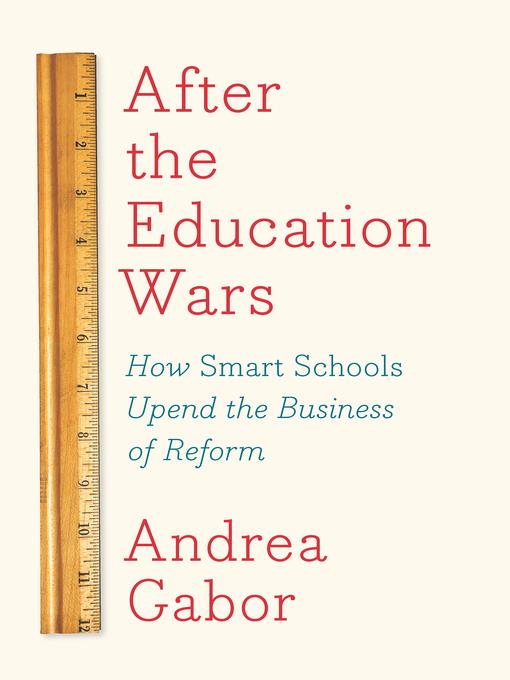
After the Education Wars
How Smart Schools Upend the Business of Reform
- اطلاعات
- نقد و بررسی
- دیدگاه کاربران
نقد و بررسی

Corporate reformers undermine public education.Joining the debate about school reform that has erupted in recent books enthusiastically for and passionately against charter schools, the Common Core, and assessment by testing, Gabor (Chair, Business Journalism/Baruch Coll., CUNY; The Capitalist Philosophers: The Geniuses of Modern Business--Their Lives, Times, and Ideas, 2000, etc.) mounts a strong argument for "a well-designed, collaborative, trust-based approach" to change. Citing reform efforts in Massachusetts, Texas, Louisiana, and New York, the author takes aim at charter schools and the "handful of wealthy, unelected, mostly out-of-town organizations and benefactors" who champion them. In New Orleans, an already troubled public school system responded to the devastation of Hurricane Katrina by turning to charter schools without ever engaging parents or teachers. Most charters, such as the much-touted Sci Academy, focused on test preparation and instituted a no-excuses policy that caused many students to be suspended or drop out; the charters were staffed largely by inexperienced teachers, trained "in highly regimented routines" designed to foster "order and security." Gabor criticizes the Common Core for favoring easily assessed subjects such as math and grammar, forcing schools to minimize civics and literature, two subjects that she believes are essential in a democracy. Moreover, rating and funding schools through their students' test scores has fomented corruption and cheating among administrators and teachers, whose jobs may be vulnerable to test outcomes. The "testing mania," Gabor asserts, "has dumbed down education." Among successful reform efforts, the author profiles Manhattan's Julia Richman High School, which adopted a small-school strategy of four schools within a larger complex. Teachers had decisive input, and the school established a trusted relationship with the teachers union. Similarly, at Central Park East, "open-classroom pedagogy and democratic governance" resulted in success. In Brockton, Massachusetts, the city's benighted high school was revived through the efforts of a strong local leader who marshaled widespread community cooperation. In 2016, Massachusetts defeated a ballot initiative to lift the cap on charter schools.A vigorous study of how school reform requires vigilance, collaboration, and a capacious definition of true learning.
COPYRIGHT(2018) Kirkus Reviews, ALL RIGHTS RESERVED. (Online Review)

July 1, 2018
In this extensively researched book, Gabor (journalism, Baruch Coll.; The Man Who Discovered Quality) examines corporate education reform by looking at systems thinkers such as W. Edwards Deming, the subject of the author's first book. Gabor feels that wrong business models are applied to school reform. By incorporating participative, collaborative, democratic, and continuous improvement approaches, schools and school districts will achieve meaningful progress. Bolstering Gabor's arguments are case studies of specific New York, Massachusetts, New Orleans, and Texas schools. Going beyond summarizing strengths and weaknesses, the author demonstrates outcomes by following up with graduates' successes and failures and doesn't shy away from analyzing the political climates that produced various attempts at reform. Throughout, Gabor stresses grassroots involvement, accountability, the importance of civics, active teacher participation, increased experimentation, reduced emphasis on standardized testing, and constructive decision-making. VERDICT This book belongs alongside Diane Ravitch's works on education, and Dale Russakoff's The Prize. It will appeal to serious readers seeking to understand the current state of education reform, how it's practiced, the pitfalls, and what does and doesn't work.--Jacqueline Snider, Toronto
Copyright 2018 Library Journal, LLC Used with permission.




دیدگاه کاربران